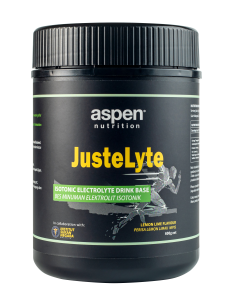
Dehydration and Electrolyte Imbalance - The Heavy Hitters to Athletic Performance.
Hydration is essential for all human beings. It is crucial for those who engage in regular physical activity, especially competitive athletes. When we exercise, our body generates heat. Sweating is a process that helps our body to release heat and regulates our body temperature. It also causes water and electrolyte losses, which can affect sports performance.
Let’s explore the importance of hydration and electrolytes for athletes and how we can reduce the negative effects of dehydration when exercising in a hot climate environment.
Importance of fluid balance and electrolytes in athletes
Water is an essential nutrient that makes up 50%–70% of our total body mass. It plays a role in digestion, absorption and transportation of nutrients, removal of wastes, regulation of body temperature, and lubrication of joints. Water losses can happen through respiration, fecal loss, urination, as well as insensible loss through the skin and sweating. We need to make sure our body receives enough water to replace fluid losses to maintain a fluid balance.
Electrolytes such as sodium play an important role in sports performance. Sodium is involved in maintaining fluid balance during exercise and transmitting electrical signals to the muscles. When we exercise, we also lose some amount of sodium through sweat.
The athlete’s ability to sustain optimal performance during training requires adequate blood flow during exercise. This includes maintaining homeostasis, transporting metabolites, and transferring heat from the muscle. Blood flow is highly dependent on blood volume. When the body is dehydrated, it is in negative fluid balance. This results in lower blood volume and will slow down the flow of blood in the body cells.
How does this affect sports performance?
The impact of dehydration and electrolyte imbalance on sports performance
Muscular strength, power, and high-intensity endurance are vital aspects of sports performance. Although there is complexity and individuality in the response to dehydration, dehydration reduces oxygen and nutrient delivery to muscles.
When exercising muscles doesn’t receive enough oxygen and nutrients, energy production is affected. Eventually, this leads to early fatigue during exercise and diminished endurance. Being dehydrated also reduces muscle strength and power output, impairing performance in strength-dependent activities.
Dehydration and electrolyte imbalances may also cause muscle cramps, spasms, and overall muscle weakness.
In terms of cognitive function, dehydration leads to decreased concentration, slower reaction times, and impaired decision-making. Poor cognitive function decreases sport performance outcomes, especially in sports that require sparring or team sport.
What should we do to prevent dehydration?
Individuals who are physically active, exercises in warm climate and sweat heavily, have higher risks of being dehydrated. In sports, fluid deficit of >2% body weight (about 1.5kg mass loss in a 70kg athlete) can compromise sports performances and cognitive function. Therefore, getting enough fluids before, during and after exercise is essential.
Starting an exercise in a dehydrated state will worsen sports performances. There are a few ways to achieve optimal hydration status prior to exercise. Firstly, urine color before exercise should be pale yellow. It is recommended to consume a fluid volume equivalent to 5-10ml/kg body weight 2 to 4 hours before exercise. This will also allow sufficient time for excess fluid to be voided. Another tip is to consume food and fluids that contain sodium. This will help with fluid retention and help with sweat rate control during physical activity events.
During exercise, athletes can sweat from 0.3-2.4 litres per hour. This also depends on their exercise intensity, duration, fitness, and other environmental conditions, e.g. temperature, humidity, etc. The recommendation for fluids intake needs to be customized to the athlete’s sweat rate, their tolerance and experience, and their opportunity for drinking fluids. However, fluid intake of 0.4-0.8 litres per hour is typically the recommended fluid plan for most athletes.
Some athletes may experience larger sweat sodium losses during exercise compared to others. Hence, sodium should be included in the hydration plan to compensate for the loss. For individuals who exercise more than 60 minutes, carbohydrates intake during exercise was shown to benefit exercise capacity and performance. In this case, sports drinks or electrolyte beverages highly benefit those who sweat heavily or have prolonged exercise duration.
It is common that athletes finish exercising in a state of a fluid deficit. Rehydration strategies should involve consumption of water and sodium at a modest rate. After exercise, athletes are recommended to replace 1.5L of fluids for every 1kg of body weight loss. This can be done in the span of 1-4 hours after exercise. This will ensure that that athlete is in the state of fluid balance before the next exercise session.
Summary
Dehydration and electrolyte imbalance can negatively impact sports performance. Athletes must prioritize hydration to maintain optimal blood flow, muscle function, and cognitive abilities. Proper hydration strategies involves consuming fluids before, during, and after exercise. Electrolytes, like sodium, are also essential for maintaining fluid balance. By consuming adequate fluids before, during, and after exercise, athletes can minimize the negative effects of dehydration and enhance their overall athletic abilities.

